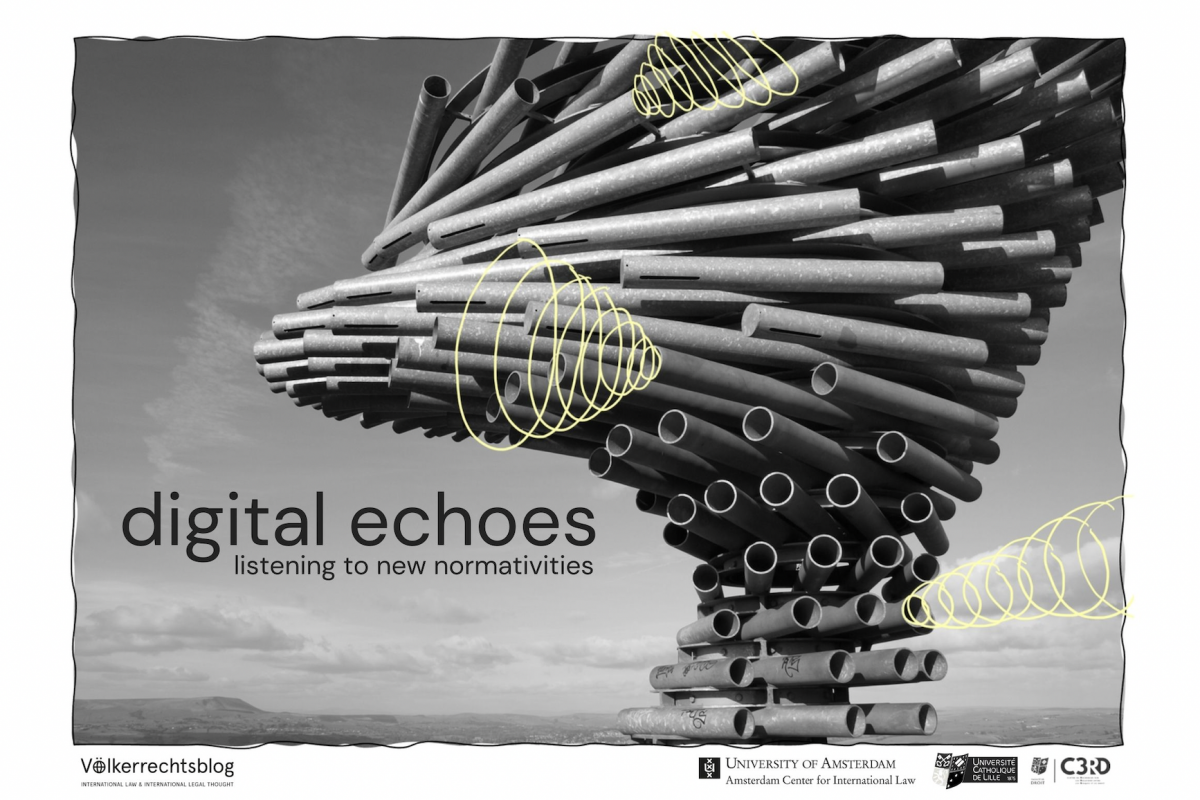4th Episode: International Law Becomes a Cyborg Science
John Haskell, Professor of Law at the University of Manchester, describes how international law is or is not becoming a cyborg science and discusses his ideas with Andrea Leiter and Delphine Dogot.
Additional reading material:
- Leiter, Andrea (2023). Life in Blocks: How Blockchain Technology Narrates the World Published in: Research Handbook on Law and Literature (Edward Elgar Publishing) Amsterdam Law School Research Paper No. 2023-39, Amsterdam Center for International Law No. 2023-15. SSRN
- Haskell, J. D. (2023). International Law as a Cyborg Science. Nordic Journal of International Law, 92(1), 9-30. DOI
- Haskell, J. D. (2019). Let us save our good project – Looking at an international law gathering to workshop chapters for a volume, pp. 45-59 in: Boer, L.J.M., & Stolk, S. (eds.). Backstage Practices of Transnational Law, 1st Edition, Routledge. DOI
Download this episode.

John Haskell is a professor/chair in Law at the University of Manchester and junior faculty at the Harvard Law School Institute for Global Law and Policy.He is broadly interested in better understanding the cultural, doctrinal and practical intersections of western-based expert governance related to international law.

Andrea Leiter is an Assistant Professor at the Amsterdam Center for International Law working on technology enabled governance. She also co-founded the Dutch non-profit organization Sovereign Nature Initiative, working at the intersection of ecology, technology and economics.

Delphine Dogot is Associate professor of Law at Université catholique de Lille, based on the Paris-Issy Campus, and research lead in Digital and Emerging Technology at C3RD, Research Centre on Law & Risk. She is the founding Director of LeStudio, a collaborative and creative digital/law lab.
